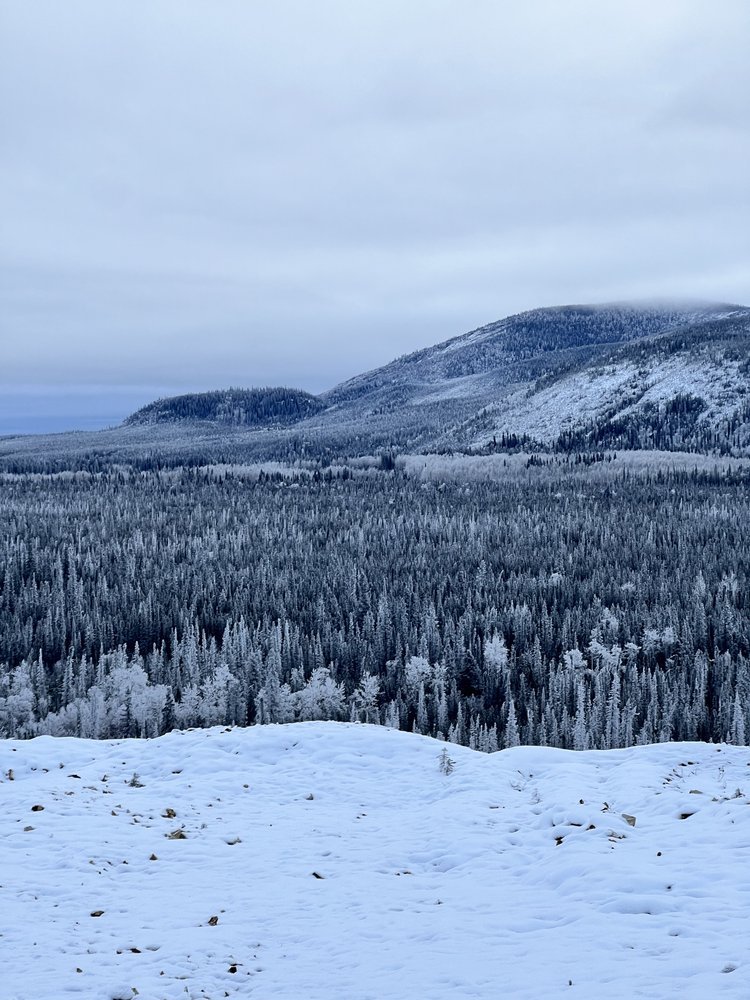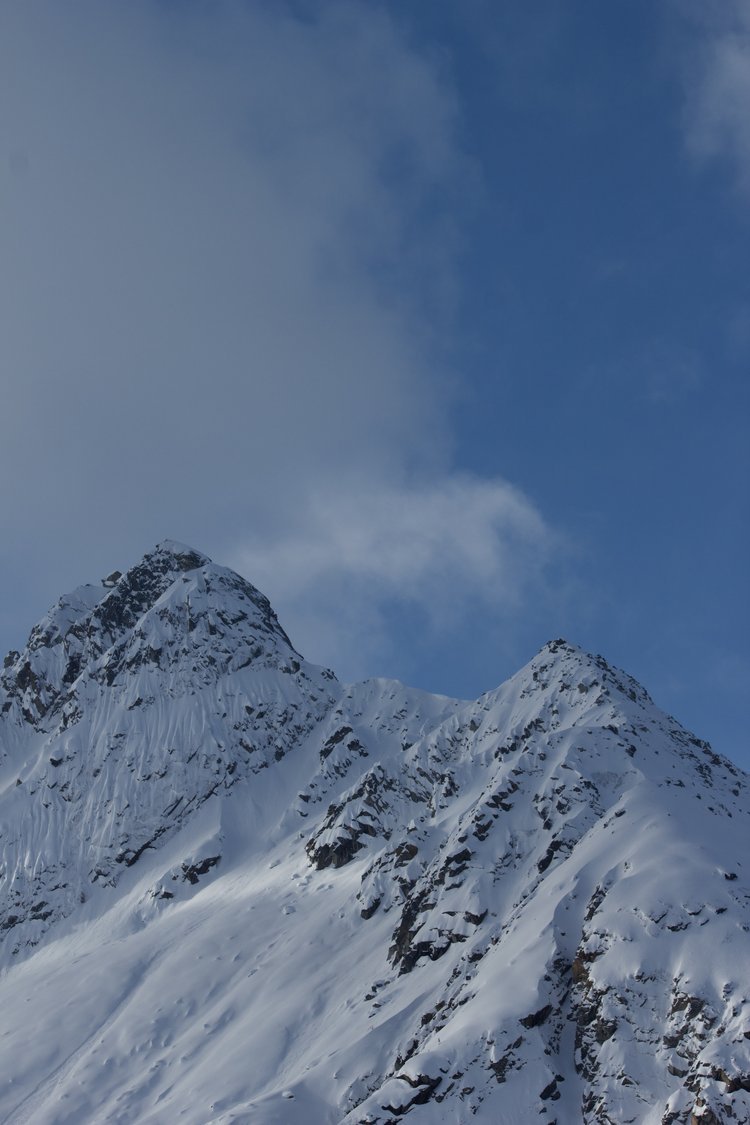Control
November first marked the date I was set to defend my PhD thesis. The days, weeks, and months leading up to that date were overshadowed by an at-times debilitating anxiety. I brushed my teeth, yes; I washed my face, yes. But not much more. My make-up drawer remained closed; my hair was left to do its own thing. I walked the dogs because I had to, but those twice-a-day ventures into the bush were without joy and even without an actual mental presence. My mind was fretting about my slide deck, the potential questions, the possible answers, my ability to hold it together. Meals were simple and hurried. Vegetable soup, boiled eggs, toast. Laundry was abandoned in the dryer until a particular item was absolutely needed. Then the basket of clothes was schlepped upstairs only to be abandoned again. Dust bunnies flourished under furniture and formed layers on shelves; the floor was dull if not sticky. At night, I lay awake for hours. If I did sleep, I was shocked awake by nightmares. What I lacked was a sense of control over my life, present and future.
Those of you who follow my journey will remember that the summer was marked by a problem in our house. We had to move and that move was surrounded by uncertainty and chaos. I was distraught and worried: we had guests coming and how would I prepare? There was no proper bedding, no organized kitchen, no comforts, no ability to pamper and host and do things in the way I wanted to do them. I was aware that the expectations I had were mine alone. I was aware that our lovely friends would be happy camping and dining on hot dogs and apples or carrot sticks en plein air. They were self-sufficient and adaptable and understanding. The problem was me.
Control. I like it. I like to feel I have it. I want it. And when I can’t have it in a larger sense because of external forces (mould, the predilections of a PhD committee), I fret over the small things. My morning coffee has to be exactly like this. The dogs must be walked at such-and-such a time. The counter must gleam, the bathrooms must sparkle, the window sills and meals and pillows and shoes must be in order, exactly in order. And I like to do these things. All because they give me the illusion that I am in control.
Truth is, when I was a child this desire for control was called bossiness. Stubborn. Willful. Selfish. There are lots of words for it. I used to direct my three brothers to trot around the baseball diamond near our house. They were horses. Trot! I shouted. Canter! Gallop! I had a small stick in my hand. What’s amazing to me now is that my brothers obeyed. Is this feeling of power the thing I seek to recreate. Is it that I am an oldest child?
I was an anxious child. Afraid of the unknown, trepidatious at the possibility of an outcome other than the expected. But I suspect that even without this history, I would enjoy cooking and cleaning and gardening and organizing for the calm they give me. I suspect that I am not alone in this. That it is a way to maintain the illusion of safety. A way to mitigate anxiety and fear.
In fact, there is very little we can control. I’ve come to understand that. I know that life ushers in many moments that require us to surrender control. This is critical for wellbeing. And still, it’s not easy. My logical mind understands this, but my emotional side still tries hard to force things into place.
It doesn’t help that there is a feeling of spiralling chaos on a macro level. The world order feels shakier than usual. War, economic instability, polarized perspectives, excess and consumption, an increasing gap between haves and have-nots, political volatility, AI. Perhaps there has always been this kind of unpredictability in the world. Perhaps my feelings are no different from those of my grandparents and great-grandparents. And perhaps they too sought security in the small routines of daily life, finding solace in planting rows of vegetables, cleaning the windows and ironing the tablecloth. Perhaps that’s all we can do.
One of my dearest friends is revolutionizing the education system, another has worked to improve access to medical services in rural communities in Nigeria, Uganda, and within Indigenous communities across Canada. And then there’re the friends who have devoted their lives to giving back, to volunteering, and to advocating. Sometimes I think about them and compare myself, concluding that they are making changes and doing things and controlling situations, while I am doing nothing, controlling nothing except how I fold or do not fold the laundry, how I set the table, whether I exercise. And then I chide myself. Because although what my friends and so many, many other people do every day to right wrongs and to facilitate improved conditions for those less privileged is valuable, difficult and laudable work, we are not all cut out for this kind of contribution. And more than that, no matter what I am doing, professionally and personally, I suspect that moments of anxiety and the panic of a lack of control will never leave me alone. And I suspect that in that I am not so very unlike everyone else.
My defence was successful. I have completed my PhD. I accomplished a feat that is considered huge. I did it. One would think that I would feel elated and relieved and proud and happy. But that was not entirely the case. Was this because it took a while to sink in? Was it because, despite the immense proportions the dissertation itself, and the defence of same, had grown to in my mind and in their occupation of time in my life, the achievement was not as great (inevitably) as the journey? Or was it because, after all was done, I was still the same person, with the same anxieties ready to surface and put their mark all over the next goal I set for myself?
Recently, two of my three brothers encouraged me (read: bullied) into signing up for a marathon. The race is nearly a year away, which is a definite plus. On the downside, a year is a long time for anxieties to grow. I am not a runner. I am far from what could be called my peak level of fitness. But I am competitive. My brothers want me to share my journey on social media (all while I haven’t even told my friends I’ve reluctantly signed up yet!). They argue that this will be a form of accountability. People will love it! they say. I think it’s cringe-worthy. But really, I wonder if once again, it’s about control.
The thing about defending something that has taken years to research and write and rewrite and rewrite again is that you are being held to account. You are being examined and scrutinized. You are putting yourself out there, opening yourself to criticism. If that is not the ultimate loss of control, I don’t know what is. But isn’t that a good thing? Isn’t that what life is all about? Isn’t that what my laudable friends are doing when they set out to battle perceived flaws in the system? And isn’t that what we value in a person?
All my self-doubting and all my anxieties arose during the writing and defending of my PhD, a self-imposed sentence. I chose to pursue a PhD and I imposed the standards. I could have walked away but I didn’t. I could have been satisfied with less, but I wasn’t. In other words, even though I crave control, I also seek ways to remind myself that control is a brief illusion. Do I really think that my housecleaning abilities illustrate the level of control I have over my life? Ha. Of course not. But still. A half-day of sweat-inducing work brings me a reward that makes me feel that, yes, I have accomplished something, right here right now, something I can see and that needn’t be judged by anyone else. Nothing wrong with that, is there.
So will I share my marathon journey on social media? Hm.




